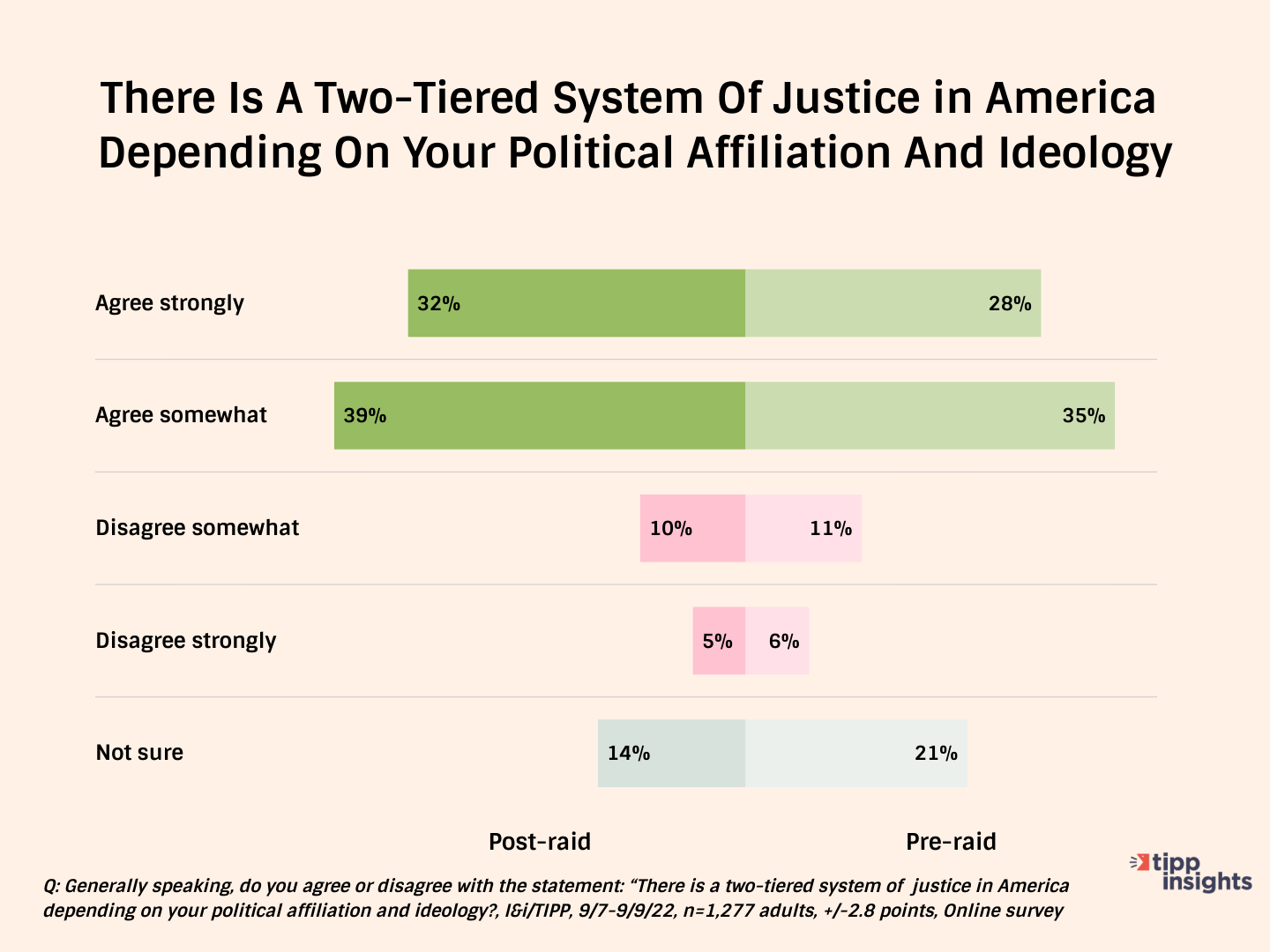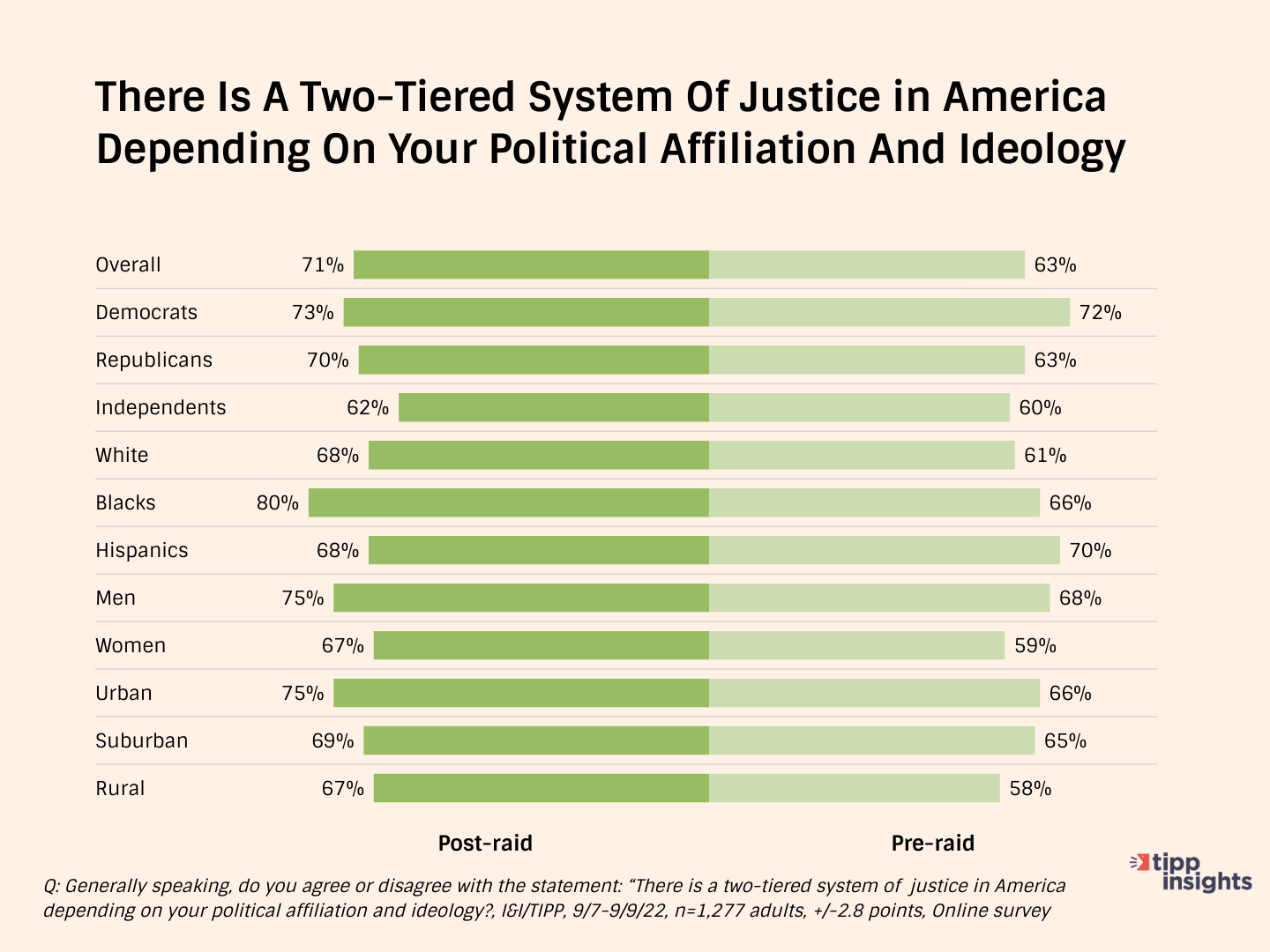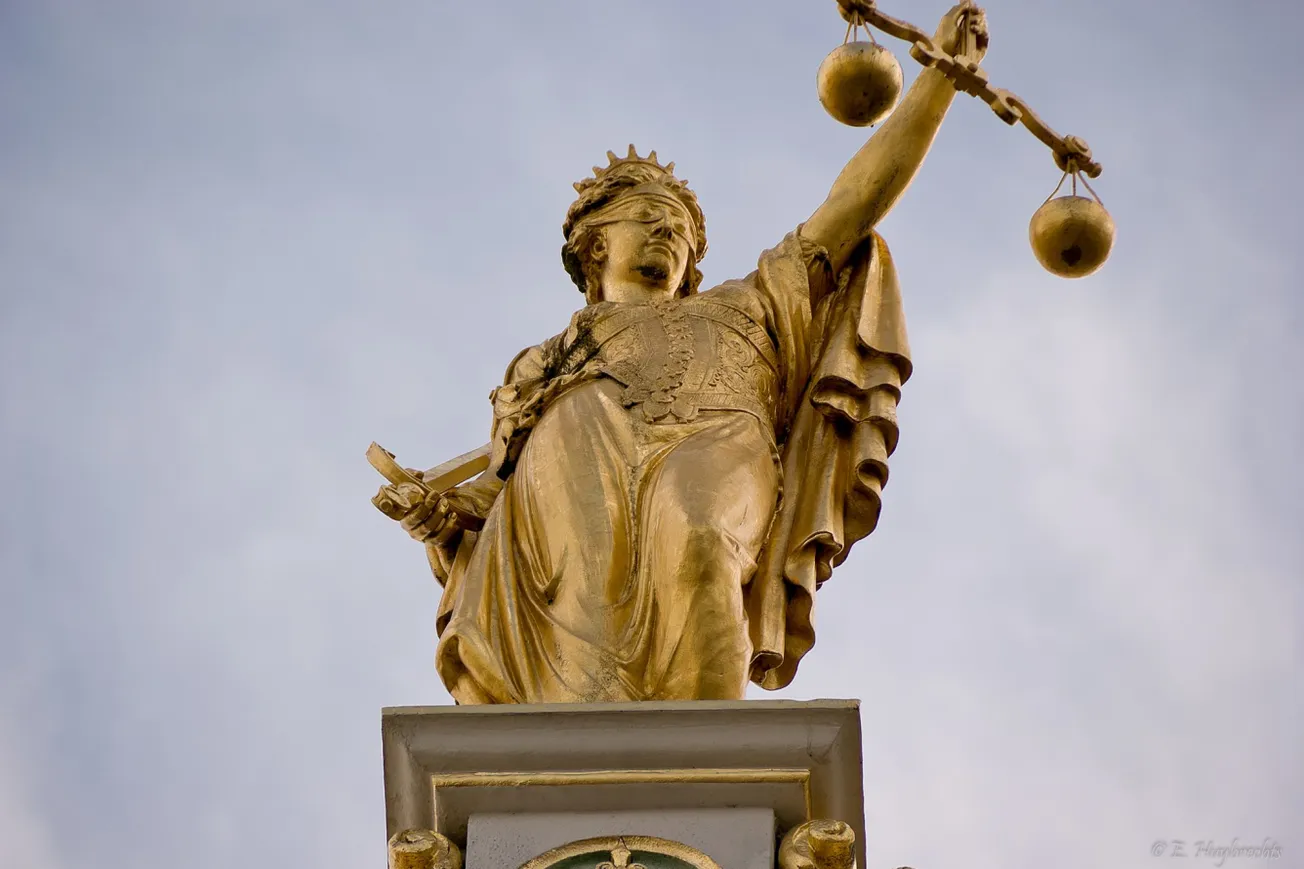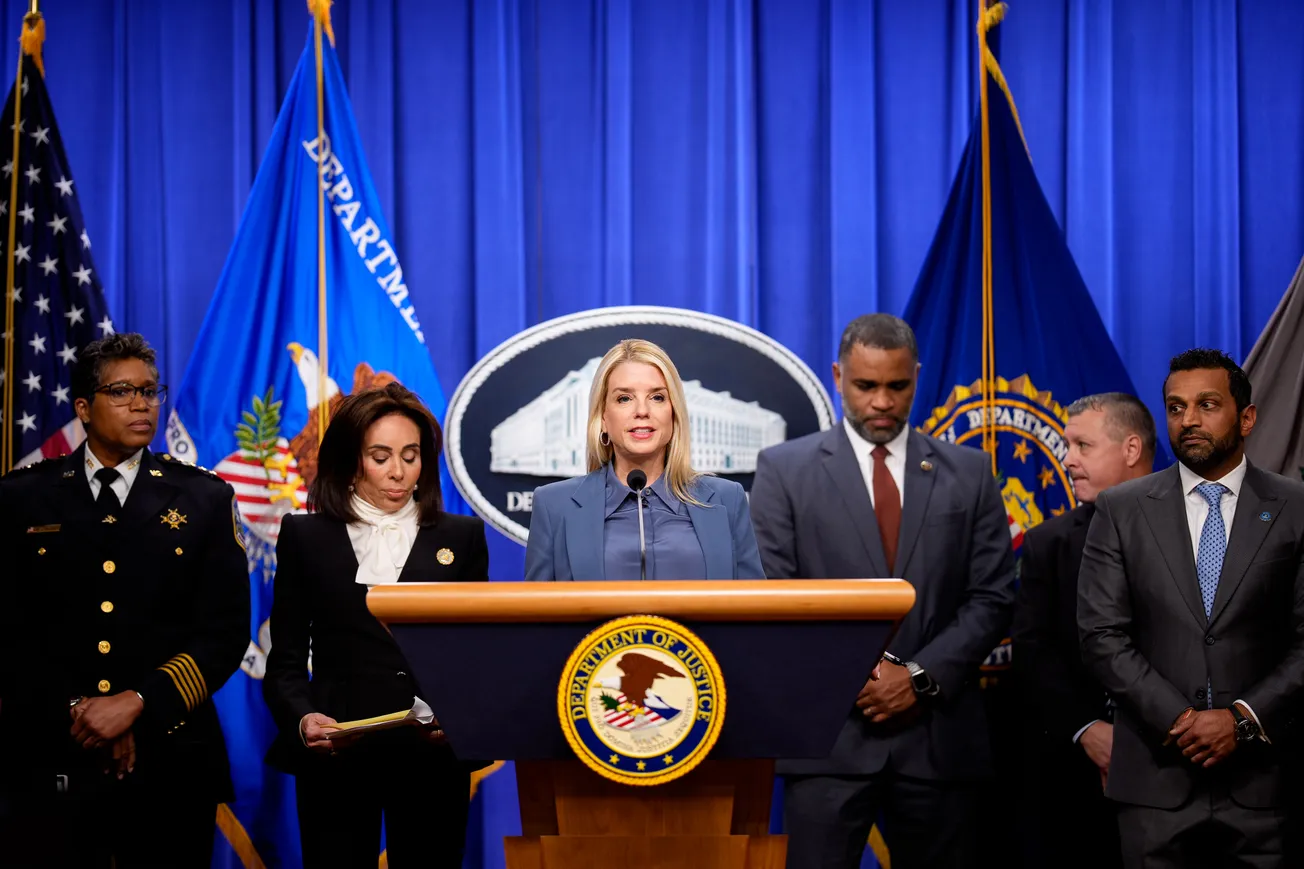One standard of justice for one group, but another for a different group? Even though that sounds distinctly un-American, many voters believe that’s happening today in America’s courts and legal venues. And it seems to be getting worse, the latest I&I/TIPP Poll suggests.
In June, a Golden/TIPP Poll (TIPP is Issues & Insights’ polling partner) asked Americans if “There is a two-tiered system of justice in America depending on your political affiliation and ideology?” At the time, a sizable majority of 63% agreed, either “strongly” (28%) or “somewhat” (35%), with that statement. Only 17% disagreed, while 21% said they were “not sure.”
But something intervened between that June 8-10 poll, the first time the question was asked, and the one taken from Sept. 7-9. Namely, the Aug. 8 raid on former President Donald Trump’s Mar-a-Lago estate by the FBI, which took documents from Trump’s presidency along with personal effects.
The latest online survey of 1,277 voters found a significant increase from 63% to 71% of those saying they agreed that we now have a “two-tiered system of justice,” with 32% agreeing “strongly” and 39% agreeing “somewhat.”
Just 15% disagreed, with 5% saying they disagreed strongly and 10% saying they disagreed somewhat. The “not sure” responses fell to 14% from the earlier 21% reading.

Importantly, the margin of error for both polls is 2.8 percentage points, so the swing is statistically significant. It means people changed their minds.
This, potentially, could turn into a major political problem for Democrats, now in charge of our justice system. After all, statues of Lady Justice in courthouses across the nation show justice as blind-folded, holding a scale and a sword. The I&I/TIPP poll shows most Americans today think that ideal is, if not dead, certainly not currently being observed.
What’s again surprising is the degree of agreement across all political and demographic categories. There is strong agreement among men (75%) and women (67%), whites (68%) and blacks/Hispanics (75%), Democrats (73%), Republicans (70%) and independents (62%), the Northeast (69%), Midwest (67%), South (72%) and West (73%).

Indeed, no demographic or political grouping agreed by less than 60%. None.
In short, there’s a strong consensus that our justice system is unfair.
But why? Recent events perhaps hold clues.
One is growing evidence that the Justice Department and the FBI have begun taking political sides when it comes to law enforcement. This is a huge problem, since both are supposed to remain scrupulously above politics and adhere strictly to the law in all their actions.
Lately, that has been called into question.
In late September, a group of 30 former FBI agents came out in strong support of FBI whistleblower Steven Friend, an FBI SWAT team member who was suspended without pay after he “alleged that the FBI has been manipulating case-file management in order to falsely inflate the threat of domestic terrorism, and using unconstitutional excessive force against political dissenters,” as the New York Post reported.
That includes the Jan. 6 protesters, who have been convicted of a number of spurious crimes, including one person who received a five-year sentence for “celebrating.” Yet another got nearly a year hard time for “gesticulating.”
Another is the FBI arrest of pro-life activist Mark Houck, a 47-year-old father of seven, who was arrested by 20 FBI agents at his home for pushing a man who verbally assaulted him and his 12-year-old son, despite local police and the district attorney refusing to file charges. Houck faces up to 11 years in prison.
Still one more is the Justice Department’s “voluminous” subpoena of the conservative non-profit Eagle Forum group that Heritage Foundation senior legal fellow Hans von Spakovsky asserts “violates the organization’s First Amendment rights to speak freely, engage in the political process, and talk to their elected representatives. It’s an intimidation tactic, pure and simple, and shows just how partisan the department has become.”
Such examples, these days, abound.
After the search of Trump’s home, supposedly to retrieve “classified” documents, many Americans were perplexed as to why. Evidence for this comes from the recent I&I/TIPP Poll, which shows that despite the raid Trump has suffered no loss of public support at all.
It’s not hard to see why. After all, recent presidents — including Barack Obama, George W. Bush, and Bill Clinton — have stored official White House documents, classified and unclassified alike, in commercial, non-government buildings, with little official security.
But Trump’s documents were kept in his large Florida estate, which is guarded by the Secret Service.
This talk of legal and judicial bias, part of the two-tier justice system Americans see operating, has come to a head in recent months, as dozens of subpoenas have been issued to allies and friends of Trump.
And, despite denials, the White House worked with both the Justice Department and the National Archives in order to launch a criminal investigation of Trump for “mishandling” official documents.
To many, the Trump allegations, the J6 prosecutions, and the efforts to silence political opposition, is all part of an effort to “freeze political opposition” in the runup to this year’s midterm elections.
If so, it will only lead to greater polarization among Americans, along with a more contentious political environment. Neither is in the country’s interest.
Each month, I&I/TIPP publishes polling data on this topic and others of broad public interest. TIPP’s reputation for excellence comes from being the most accurate pollster for the past five presidential elections.
Terry Jones is an editor of Issues & Insights. His four decades of journalism experience include serving as national issues editor, economics editor, and editorial page editor for Investor’s Business Daily.
Hey, want to dig deeper? Download cross-tabs from our data store for free.








